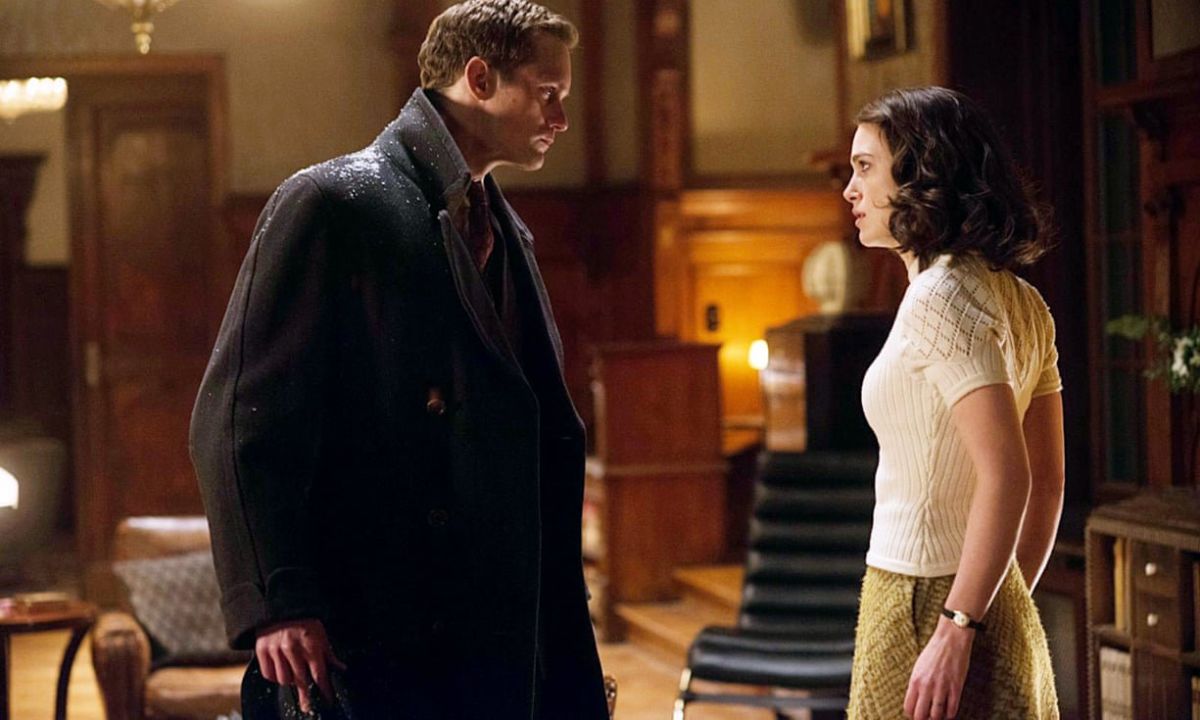When the wife of a British Colonel Officer (Jason Clarke) is forced to move into the ruins of Hamburg, Rachael Morgan (Keira Knightley) is forced to tolerate sharing her new home with its previous German owner Stefan (Alexander Skarsgård). After a few flirtatious glances and fiery arguments, a wistful love affair ensues against the backdrop of a war-torn country.
At first glance, The Aftermath seems your bog-standard British wartime movie, starring well-regarded actors struggling under their character’s emotional strain. And, for the most part, you’d be right. Director James Kent (Testament of Youth, 2014) does manage to play off the film’s predictability with moments of tense drama. But the word ‘moments’ is key here, as it is a suspense that fails to hold up throughout the entire film. There are a handful of applaudable scenes,such as Knightley’s breakdown when playing the piano in remembrance of her son. But a lack of chemistry and overall intensity prevents The Aftermath reaching much further than another post-war romance.
Themes of grief, tolerance and betrayal are integrated well into the narrative. The unique perspective, taken from Morgan’s initial prejudicial attitude, allows for suitable character development. The lines between good and bad are blurred, as sympathy is lent to Nazi prisoners but from the perspective of the British. Clearly, Rhidian Brook -writer of the original 2013 novel- had an allegory of compassion in mind to motivate The Aftermath.
The political strife of 1946 Hamburg is only briefly touched upon by Kent. Officer Burnham’s malicious corruption fails to provoke any strong villainous force. The sub-plot of Stefan’s daughter affiliating with Nazi youths is skimmed over, peaking with a forgettable climax. Perhaps Kent would have been better off concentrating on one aspect of Brook’s original story, rather than spreading it out too thinly on all sides.
What can’t be argued is Kent’s noble attempt at furnishing a classy, British romance drama. There’s heart in it, and occasions of well-crafted cinema. Kent simply blunders when it comes to really generating atmosphere or excitement. The illustrious aesthetics, graceful wardrobe and sleek set design give an air of nostalgia to the post-WWII film. However, this is not quite enough to keep The Aftermath from ringing with soppy, superficial romance.
The Aftermath is an overall smart movie that attempts to unite the idea of forbidden love with the prospect of ending the prejudices of war. The underpinning message that it’s “all the same sea in the end” is poignant. Yet it becomes lost under the waves of a limp romance that never quite reaches its potential.
Some of the coverage you find on Cultured Vultures contains affiliate links, which provide us with small commissions based on purchases made from visiting our site. We cover gaming news, movie reviews, wrestling and much more.



